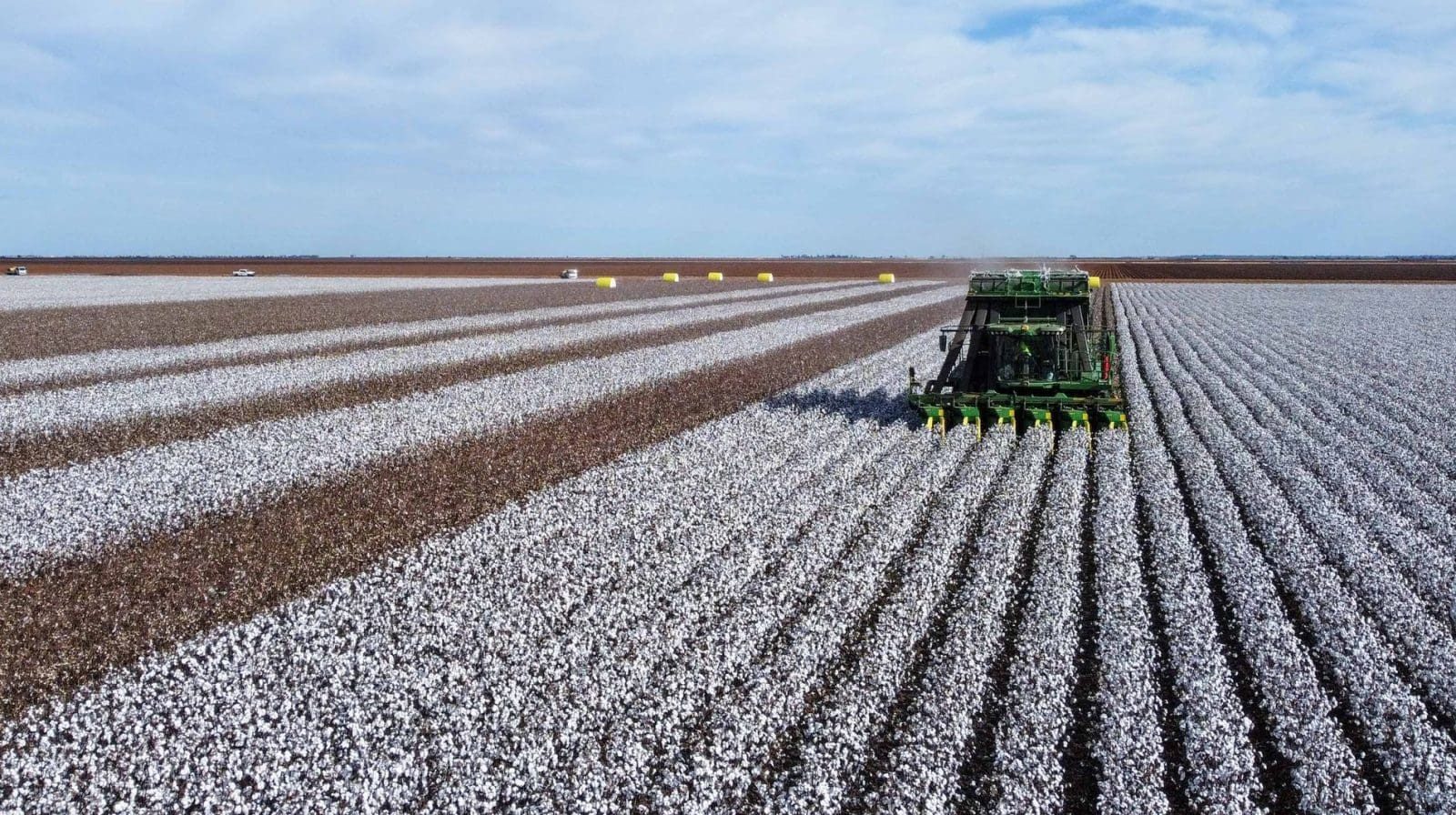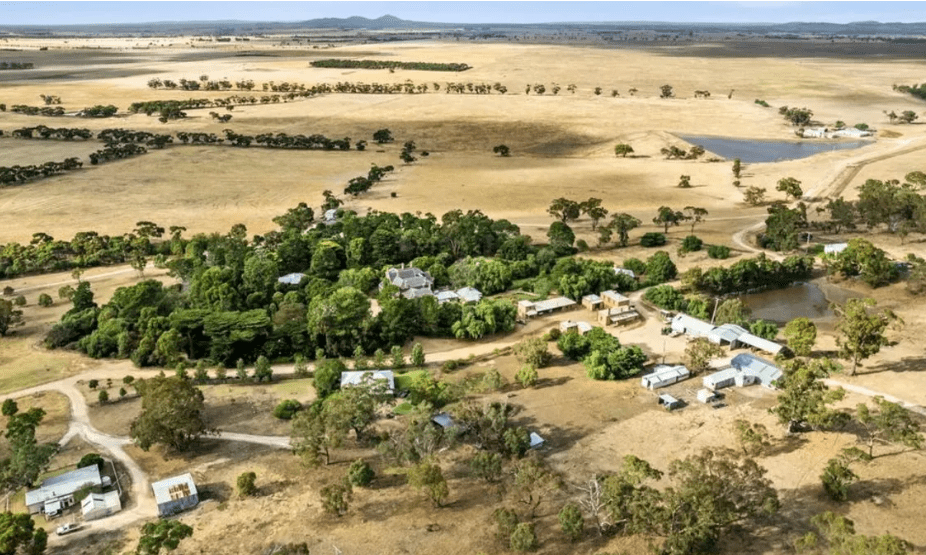
Gundaline Station was sold with a large amount of secure water entitlements. Photo: LAWD
AUSTRALIAN agribusiness is set to overtake mining as China’s top destination for investment in this country, a new report has found.
The finding will be unveiled in the revised Demystifying Chinese Investment in Australia report which analyses Chinese Overseas Direct Investment into Australia in calendar year 2023.
The report was released last week, but is now being amended based on some new information received by KPMG and the University of Sydney’s Business School, including the Greystones investment (see below) which Beef Central raised with the team after finding it had been originally overlooked.
The Demystifying Chinese Investment in Australia article covers investments made by corporates with head offices based in China, excluding Hong Kong and Macau, through mergers and acquisitions.
Completed deals valued below US$5 million are not included in the report, due to a lack of detailed, reliable information.
Relative to China’s red-hot demand for Australian property at the end of the last decade, 2023 saw overall Chinese investment in Australia plunge to one of its lowest levels since 2007 in terms of value and number of transactions.
Despite the drop, food and agribusiness rose to the top Chinese investment target sectors in 2023, representing 40 percent of the overall Chinese value following three significant deals totalling AU$363M.
The most notable took place in January last year when Chinese clothing manufacturer Zhejiang Sunrise Garment Group, operating as Smart Shirts, acquired one of Australia’s largest irrigated cotton operations for $121M.
The 14,916ha Gundaline Station, located near Carrathool in the Murrumbidgee Irrigation area of southern New South Wales, boasts 6000ha of first-class flood irrigation, with the balance comprising dryland cropping and grazing.
The second transaction occurred in November 2023 when Guangxi Investment Company added the iconic Victorian Greystones Estate to its already impressive portfolio for around $80M.
Operated as an extensive cropping and superfine Merino wool enterprise, the 4033ha property is situated near Rowsley, north-west of Melbourne.
Around 1214ha is set aside for dryland cropping, with 2808ha of native and improved pastures running 6000 sheep.
Settled in 1840, Greystones boasts an historic 13-bedroom bluestone mansion and represents an unprecedented land-bank opportunity given its proximity to Melbourne.

Guangxi Investment Company bought the 4033ha Greystones Estate at Rowsley, north-west of Melbourne, in November 2023. Photo: Colliers
In 2020, Harvest Agriculture, an Australian-based wholly owned subsidiary of Guangxi Investment Company, paid around $60M for Victoria’s Yaloak Estate – one of the largest single landholdings within 60km of Melbourne and just 20km from Greystones.
The 5071ha property near Ballan, pictured above, is operated as a productive grazing and cropping enterprise and, like Greystones, represents an unprecedented land bank opportunity given its proximity to Melbourne.
The third food and agribusiness investment last year saw Chinese and Singapore interests outlay $161 million to expand Australia’s Real Pet Food Co.
Chinese investment challenges
Two years ago, the 2021 ‘Demystifying Chinese Investment in Australia’ report featured insight from Chinese investors on the challenges that Chinese companies faced in Australia.
Key issues included difficulties obtaining financing and regulatory approvals from China for overseas real estate investment, relatively lower returns from the Australian market given increasing costs of land, financing and construction (during and after COVID), as well as Australian government approvals.

Helen Zhi Dent
Report co-author Helen Zhi Dent, KPMG’s Chinese Business Practice partner, said as a result, Chinese investment in Australia remained subdued in 2023.
“Better trade relations may lead to increased investment deal activity, but Chinese investors, like any international investors active in the Australian market, will need to see strong fundamentals in place to move on deal activity,” she said.
Ms Zhi Dent said despite the current lull, there remained the potential for Australia to attract Chinese investment.
“This can be achieved by leveraging relationships in sectors with a long history of cooperation and mutual trust between corporate partners in the two countries. I would definitely count agribusiness as one of these sectors.”
The report identified the recent removal of wine tariffs as an example of improving the cross-border trade environment, believing this could help to kick-start increased Chinese investor interest in Australian agribusinesses.

Professor Hans Hendrischke
Co-author Professor Hans Hendrischke from the University of Sydney’s Business School said the evolving nature of Chinese investment offered avenues for renewal and growth in the bilateral investment relationship between Australia and China.
“There remain many opportunities for collaboration in areas such as Australia’s premium food and agricultural produce, resource endowments, commitment to net zero by 2050, innovation capabilities and strategic location,” he said.
Chinese investment history
Helen Zhi Dent said between 2006 and 2023, the Australian food and agribusiness sector received almost $5 billion from Chinese investors, making up four percent of the total Chinese offshore investment.
“Interest from Chinese investors in this sector has remained high since 2006, although actual transactions were sparse before 2013.”
“A noticeable surge in large-scale investments occurred after 2015 when China started investing in livestock, meat processing, dairy, sugar, cotton, vineyards and other agribusinesses,” she said.
According to the report, the history of Chinese investment in Australia can be divided into three periods: the resources boom period (2006–2012), the diversification period (2013–2016) and the contraction period (2017–2023).
Between 2006 and 2012, Australia was the leading recipient country of Chinese ODI globally. A total of 128 transactions were completed, amounting to US$50.8 billion.
During this period, Chinese ODI in Australia was concentrated in the resource industry, with 73pc in mining and 14pc in oil and gas.
Between 2013 and 2016, 268 transactions were completed, amounting to a total of US$39.2 billion as Chinese ODI in Australia diversified into non-resources sectors including infrastructure, food and agribusiness, commercial real estate, renewable energy and healthcare.
Since 2017, amid global uncertainty, Chinese investment in Australia has experienced a continuous decline.
Between 2017 and 2023, a total of 271 transactions were completed worth US$23.5 billion. In this contraction period, Chinese ODI has primarily been directed into mining, healthcare, food and agribusiness, renewable energy and commercial real estate.
More recent Chinese activity
While Beef Central is not privy to off-market transactions, it has reported on the following recent sales and listings by Chinese interests:
February 2024 – After more than 30 years ownership, Chinese-owned but Sydney-based Mathew’s Farm Investments (previously known as China State Farms) listed Charleville’s 30,759ha Noella, 85km west of Augathella in south-west Queensland. A month later, the sought-after breeding, backgrounding and fattening country was purchased by Adrian and Megan Forrest for $27 million ($878/ha bare).
October 2023 – Blue-chip south-west Queensland cropping properties Undabri and Yambocully were listed for sale for around $100 million by their Chinese owners.
Located in the Border Rivers region near Goondiwindi, the aggregation has a history of growing summer and winter crops in addition to supporting a large livestock enterprise.
Close to cotton gins, grains receival sites and feedlots, the 13,920ha aggregation has been put together over ten years by the Shanghai-based private investment group Oriental Agriculture.
Grain Central: Get our free news straight to your inbox – Click here



HAVE YOUR SAY